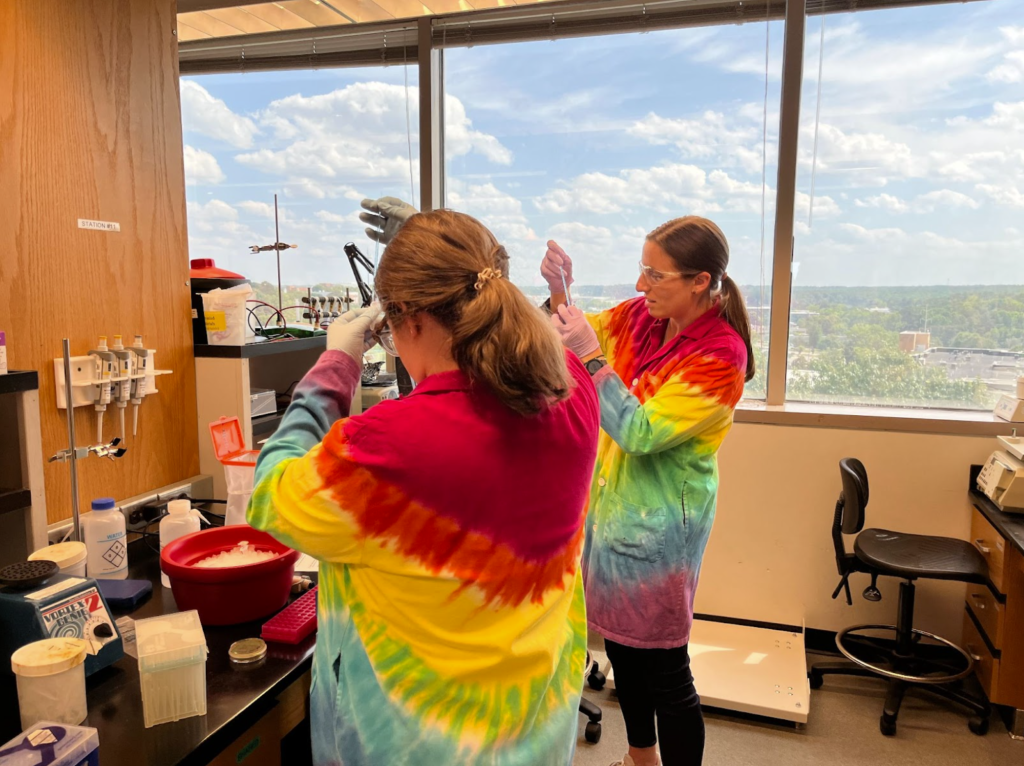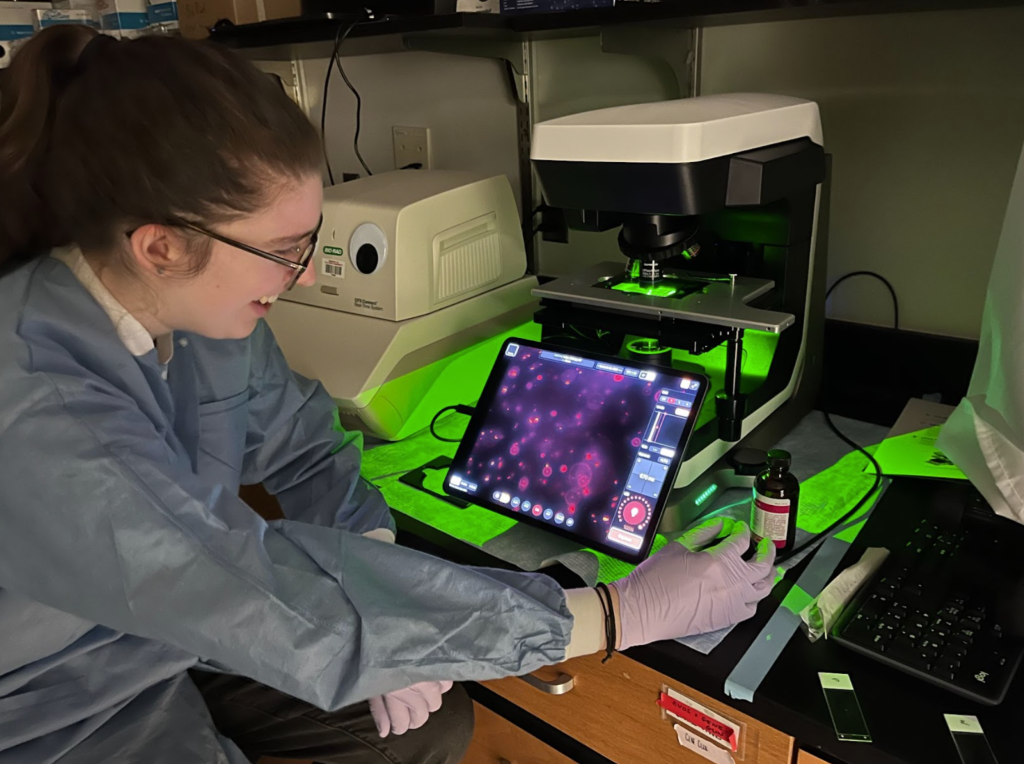Let’s Get Editing: A New Course on CRISPR Technology with Dr. Brown
Since accepting the position as a postdoctoral teaching scholar in January 2023, Dr. Brown has worked on developing his new course on CRISPR technology. Clustered Regularly Interspaced Short Palindromic Repeats, or CRISPR, is a gene editing technology that is used by scientists to genetically modify genomic DNA and has been continually improved ever since its discovery as the adaptive immune response in bacteria in 1987. In 2020, the Royal Swedish Academy of Sciences awarded the Nobel Prize in Chemistry to Jennifer A. Doudna and Emmanuelle Charpentier “for the development of a method for genome editing.” Now, after a year of planning and acquiring appropriate materials, the new course on CRISPR technology is finally being added to the MBLEM offerings in spring 2024!

Out of all possible biotechnology topics, how did Dr. Brown decide on CRISPR? That’s when he told me that he “had some CRISPR background from [his] PhD and when [he] looked at the classes being offered, [he] thought there was a hole and that CRISPR could fill it.” He mentioned how, especially in recent times, CRISPR has become more and more prominent, with many labs incorporating the innovative technology in their research.
“CRISPR is becoming much more widespread, so I thought students, no matter where they go next, could get something out of it.”
– Dr. Phillip Brown
When creating this new course, Dr. Brown wanted the focus to be on communication between him and his students and also among the students themselves. Although the lecture time is an hour and fifty minutes, he said he wants most of the time to be spent with students collaborating and engaging in interactive activities. This is especially possible with the small class size of just 12-16 students, where every student has the resources and support to fully grasp the essence of CRISPR technology.

Around 2015, Dr. Chase Beisel introduced the first iteration of a course on CRISPR called CRISPR Technologies and several other BIT instructors have taught versions of it, though by 2021 the course was no longer offered. However, since Dr. Brown joined the BIT program, he became determined to revive the CRISPR course. Although materials from past years are still included in the course, the labs are all new! Just as CRISPR technology is always changing and improving, he modified lectures, course materials, and labs to be up-to-date with the most recent findings and information. Recently, CRISPR technology has been used to successfully cure sickle cell disease. The future of medicine hopes to increase the scope of CRISPR technology and tackle more illnesses. Aside from medicine, CRISPR also has other applications. Dr. Brown is focusing on phage engineering that could lead to potential antibiotic strategies. Phage engineering requires gene editing techniques such as CRISPR to increase the host range of bacteria and have bacteria-specific phages (viruses) combat bacteria that cause diseases. However, a technology with such capabilities also has limitations. A course on CRISPR wouldn’t be complete without addressing bioethics and equitability. In the last couple weeks of this course, controversies around the use of CRISPR will be discussed to provide students with a holistic understanding of CRISPR technology.

Seats have already been filled up for fall 2024 but here’s the good news, BIT 495 Special Topics (Genome Engineering: CRISPR Technology) is offered during fall and spring semesters! Make sure to take the pre-requisite course BIT 410/510 before being able to register for the CRISPR course. As for those who have finished the pre-requisite, don’t miss out on the scope of CRISPR and have BIT 495 in your cart for spring 2025!